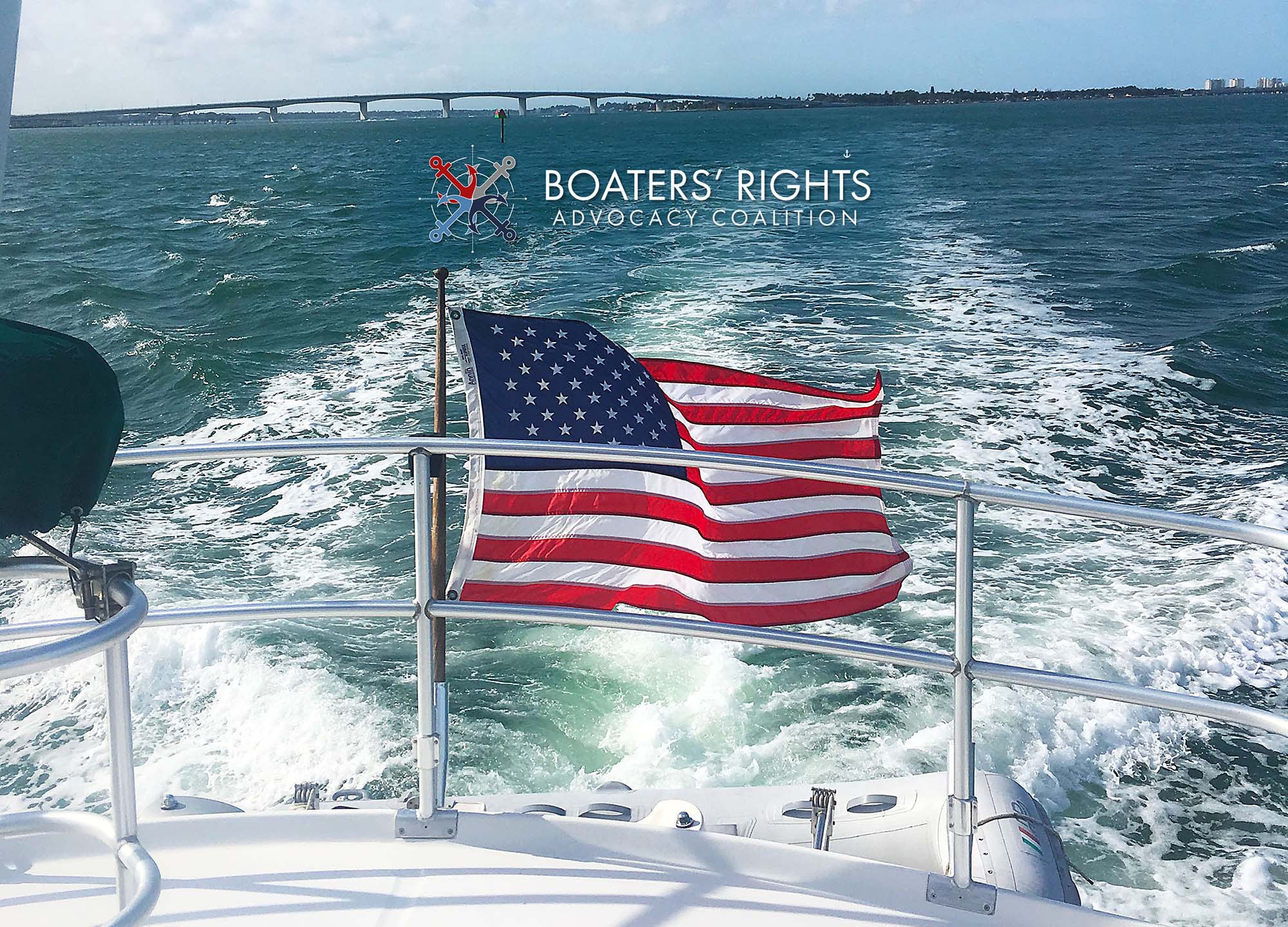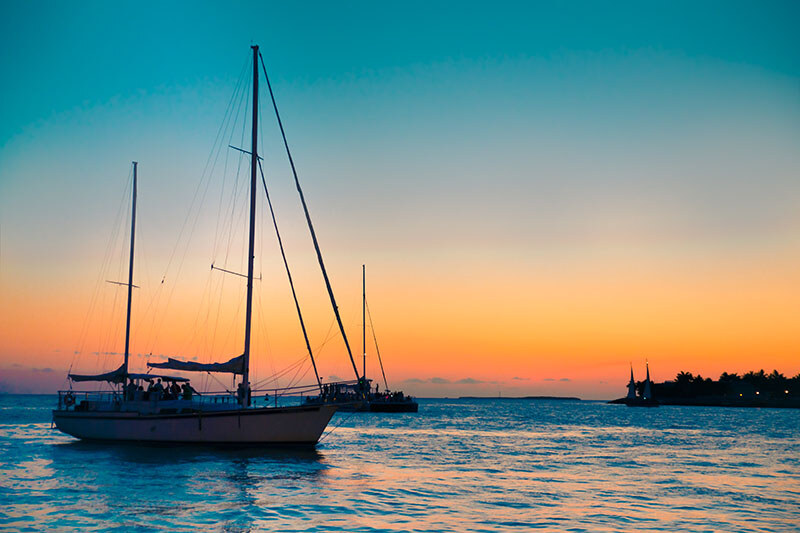Freedom of Our Waterways for All
We are a coalition of dedicated boaters associations representing more than 20,000 members committed to advocating for the rights of all active cruisers and boaters. Our mission is to ensure safe, equitable, and sustainable access to our public waterways.
Through education and collaboration, we aim to bring together all stakeholders—boaters, policymakers, and the public—to foster a deeper understanding of the responsible use of our waterways. We strive to make research and resources on waterway access, anchoring, mooring, and passage easily accessible, ensuring informed discussions and decisions.
Together, we navigate towards a future where our waterways, moorings, and anchorages remain open to everyone and continue to be cherished for generations to come.

HB481/SB866 Anchoring Limitation Areas - Full Text
This bill restricts anchoring between additional islands in the Miami Beach area, extends the no-anchoring zone around marked mooring fields from 100 to 300 feet, and in counties with populations above 1.5 million people it prohibits anchoring for more than 4 hours during nighttime for more than 30 days in a six-month period.
HB795/SB594 No Anchoring or Mooring Zones – Full Text
This bill allows seaports in Florida to apply to Florida Fish and Wildlife Commission (FWC) for a no-anchoring zone around the seaport. The proposed no-anchoring zone may not exceed 5000 feet (almost one statute mile) from seaport facilities. FWC has approval authority of the no-anchoring zone following consultation with certain government entities.
HB1149/SB164 Vessel Accountability - Full Text
This bill creates a requirement for permits for long-term anchoring throughout Florida. These permits are free of charge. Long-term anchored boats are those which remain in the same location for more than 14 days. Permits are specific to the owner, vessel and anchored location. This bill also specifies that vessels that have received three or more violations of the Florida statute defining a vessel at risk of becoming derelict over a 24-month period must be declared a public nuisance and subjected to forced removal from the waterways after following a specified hearing process.
Statutes, laws, definitions, and details
Florida Vessel Safety Statute - Chapter 327 Full Text
The primary basis for boating safety and regulation in the State of Florida is Statute Chapter 327 Vessel Safety.
Florida Vessel Statute - Chapter 327 Definitions
State of Florida Statute Chapter 327 Florida Vessel Safety definitions. Of particular interest to pleasure and cruising boaters include:
(8) "Commercial vessel"
(12) "Documented vessel"
(13) “Effective means of propulsion for safe navigation”
(14) “Floating structure”
(17) “Houseboat”
(23) “Live-aboard vessel”
(46) “Unclaimed vessel”
(48) “Waters of this state”
Florida Vessel Statute - Chapter 327 Anchoring Limitation Areas (ALAs)
327.4108 outlines the State of Florida's current grand fathered in Anchoring Limitation Areas (ALAs), defines ALAs terms, and outlines the rules for enacting ALAs in accordance with State of Florida statutes.
Documents, Insights, Findings, and Analysis
Various public and private organizations, non-profits, scholars, legislators, and municipalities have invested much time, effort, and money researching boating questions and concerns throughout the State of Florida. Here are some of those resources that may be useful for research, discussions, and decisions.
Boating, Waterways, and the Rights of Navigation in Florida 2/2019
A University of Florida Levin College of Law Legal Studies Research Paper which represents the fifth edition of analysis of the federal, state, and local government law associated with the practice of navigating on the waters of the State of Florida.
State Policy Brief: Amendments to Florida's Boating Laws, 2021
The 2021 Florida Legislature passed two significant bills affecting Florida boating law. Senate Bill 1946 amends Chapter 327 of the Florida Statutes to address the question of anchorage limitations over state waters. Senate Bill 1086 is considerably broader, addressing among many issues: at-risk and derelict vessels, marine sanitation devices, no-discharge zones in aquatic preserves, and vessel regulation in springs.
Miami-Dade RER-DERM Report, 11/2023
On July 19, 2022, the Board of County Commissioners (Board) adopted Resolution No. R-722-22, directing the County Mayor or County Mayor’s designee to conduct a study and make recommendations regarding the establishment of additional anchoring limitation areas in Miami-Dade County pursuant to Florida Statute. This report was prepared by staff of the Department of Regulatory and Economic Resources, Division of Environmental Resources Management (RER-DERM).
Florida's Long-Term Stored Vessel Study, 2/2023
Overview - Florida conducted a study to better understand of the impacts of long-term stored vessels on local communities and the state. For the purposes of the study, a “long-term stored vessel” is a boat on state waters which is not under the supervision or control of a person capable of operating, maintaining, or moving it from one location to another and which has remained anchored or moored outside of a public mooring field for at least 30 days out of a 60-day period.
FWC - Long-Term Stored Vessel Study, 9/2023
Overview - In 2019, Florida’s Legislature authorized the Florida Fish and Wildlife Conservation Commission (FWC) to conduct a study to establish if a correlation between long-term stored vessels and the incidence of derelict vessels exists; to identify the impacts to local and state economies, infrastructure, safety, and the environment; and to propose recommendations to help mitigate any negative impacts. The study was funded in 2022, and it arose against a backdrop regulatory initiatives related to anchoring, including major legislation enacted after this study’s 2019 conception.
FWC - Vessel Turn-In Program (VTIP)
The Florida Fish and Wildlife Conservation Commission (FWC) Vessel Turn-In Program (VTIP) allows vessel owners who have received a written citation or warning for their vessel being at risk to voluntarily surrender their unwanted vessel to the FWC. Surrendered vessels will be removed from Florida waters and destroyed at no cost to the vessel owner. The costs of removing, destroying and disposing of eligible VTIP vessels are 100% funded by this program.
FWC - Anchoring and Mooring Pilot Program Report
The Florida Fish and Wildlife Conservation Commission (FWC), in consultation with the Department of Environmental Protection (DEP), was directed by Florida’s Legislature in 2009 to establish a pilot program to explore potential options for regulating the anchoring or mooring of vessels (other than live-aboard vessels) outside the marked boundaries of public mooring fields. This Legislative action was codified in Section 327.4105, Florida Statutes (F.S.), and has since become widely referred to as the “Anchoring and Mooring Pilot Program.”
NMMA Economic Impact of Boating in Florida Data
The National Marine Manufacturers Association regularly tabulates the economic impact of the recreational boating industry for the United States and individual States. In the State of Florida, recreational boating generates $33.3 billion in annual economic impact, supporting more than 7k businesses and 109k jobs. You can view Recreational Boating Industry Data in U.S. and by State.
NMMA Advocacy Links
Overview - NMMA advocates on behalf of its more than 1,300 members to protect and expand the recreational boating industry in the United States, Canada, and around the world. NMMA member companies produce more than 80 percent of the boats, engines, trailers, marine accessories, and gear used by millions of boaters in North America.
Recent Reports and Outreach Activities:
NMMA Policy Priorities for 2024-25 - with economic data and outline of priorities
Congressional passage of the reconciled Water Resources Development Act (WRDA) authorization would strengthen the U.S. Army Corps of Engineers’ (Corps) role in managing public lands and waters by enhancing public access and improving recreational facilities.
FWC Derelict Updates Report - 11/2025
11/18/2025 Presentation by FWC Major Bill Holcomb to the Florida House Agriculture & Natural Resources Budget Subcommittee discussing Derelict Vessels.
FWC Derelict Updates Report - 2/2025
Presentation by the Florida Fish and Wildlife Conservation Commission on Derelict Vessels, Enforcement Challenges, and the Long Term Vessel Storage Study to the Florida Senate Environment and Natural Resources committee on Tuesday, February 4, 2025
Collaborate
A Coalition of four active boaters associations representing more than 20,000 boaters. The coalition include America's Great Loop Cruisers' Association, DeFever Cruisers, Marine Trawler Owners Association, and Seven Seas Cruising Association.
Advocate
Advocate for the rights of active cruisers and boaters focusing on safety, access, environmentally aware, enjoyment of our natural resources.
Educate
We aim to educate and bring together all stakeholders—boaters, policymakers, and the public—to foster a deeper understanding of the responsible use of our waterways.
Our easy access library for the vast quantities of research and resources related to state statutes, waterway access, anchoring, mooring, navigation, and passage making for boaters, policy makers, and the public.
